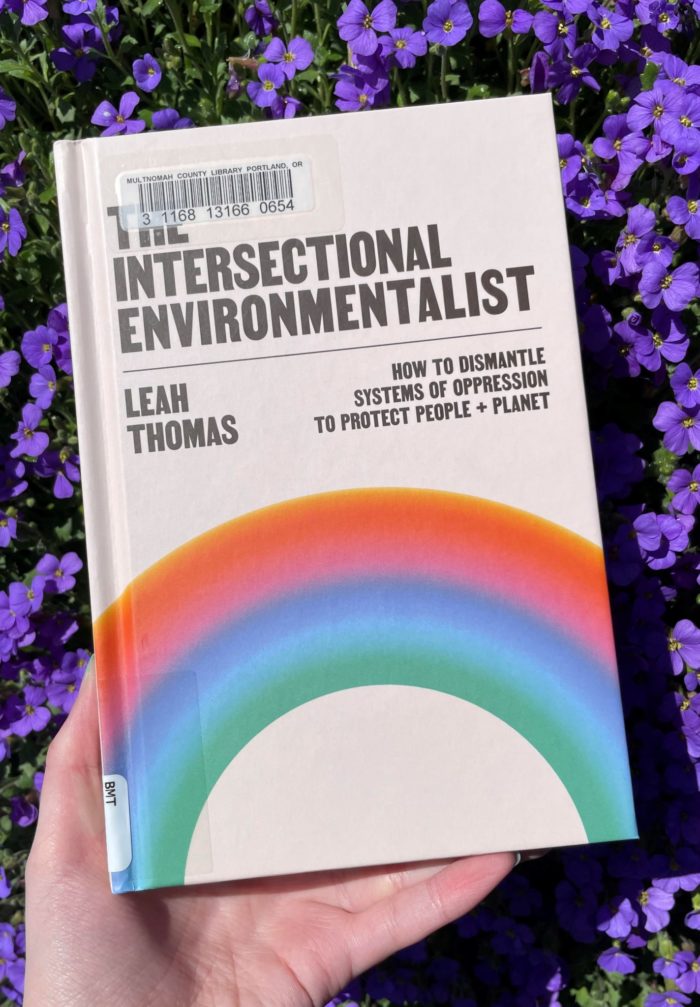In her new book, The Intersectional Environmentalist, Leah Thomas asks: “How privileged must one be to so boldly participate in theatrical protests?” This is a question that has been brewing in the back of my mind a lot as of late as I watch protesters around the world and how differently they’re treated. Across the US, many white protesters can put on huge theatrical productions, and face minimal backlash. And yet BIPOC protesters and the marches and rallies put on by them get swarmed by cops. This trend is, of course, not universal, but once you’re aware of it, you begin to see it everywhere.
Thomas started the Intersectional Environmentalist Instagram in 2020 after feeling frustrated and confused that more environmentalist organizations were not stepping up following the murder of George Floyd and the following protests. Since then, she has sparked a movement of activists pledging to view their environmentalism through an intersectional lens.
This is a short, accessible read about the history of intersectionality, environmental justice, and the environmental injustices faced by people who live in the US. The book includes discussion questions and pledges for environmentalists wanting to make sure their work is intersectional. This book is a valuable resource for those starting out in a journey of intersectionality and antiracism.
That said, I do think a lot of the information in this book is also found in more detail in other books. The target audience for Thomas’s book feels like young adults and teenagers. Which doesn’t negate its importance, young folk need books like this one, and having one as beautifully designed as The Intersectional Environmentalist will probably help it reach more people. We’re always told not to judge a book by its cover, but by golly, this one is gorgeous. Major shout out to the graphic designer, Alexa Terfloth.
If you’re looking for a more in-depth history of environmental racism and environmental justice, I recommend Rooted in the Earth: Reclaiming the African American Environmental Heritage or To Love the Wind and the Rain: African Americans and Environmental History both edited by Dianne D. Glave. And if you’re interested in reading books about antiracism, I recommend the author Ijeoma Oluo.
All in all, this book is well worth the read, and has lots of important information. The discussion of the negative impacts of green energy projects on Indigenous communities was particularly enlightening, not something I’ve seen discussed much elsewhere, and important to be aware of, especially in regards to what is happening at Thacker Pass. The last sixty pages have a glossary of further reading and discussions with contributors that is a valuable resource to have. Get yourself a copy at the library, or at Black-owned Third Eye Books. Follow the author at @greengirlleah on Instagram, and the movement @intersectionalenvironmentalist.

